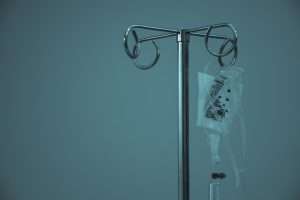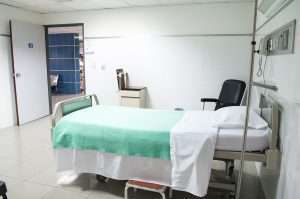If you’re wondering how to know if a product is FSA eligible, you’re not alone. One simple way to get started is to consult the IRS guidelines or use resources like your FSA plan’s comprehensive list of eligible items. Below, you’ll find a quick answer to get you started:
- Check the Product Detail: Look for FSA or HSA eligible badges.
- Consult Your Administrator: Confirm eligibility with your specific FSA plan.
- Review IRS Publications: IRS Publication 502 provides detailed lists of eligible expenses.
- Use Specialized Retailers: Websites that specialize in FSA-eligible products often have search features to verify eligibility.
Understanding what items qualify for an FSA can save you significant money on healthcare expenses, from prescriptions to preventive care. This guide will help you steer FSA eligibility rules and make the most of your tax-advantaged dollars.
I’m Les Perlson. With over 40 years in the health insurance industry, I specialize in simplifying how to know if a product is FSA eligible for individuals and small businesses alike. Let’s dive in to make sure you’re maximizing your benefits.

Understanding FSA Eligibility
Flexible Spending Accounts (FSAs) can be a fantastic way to save on healthcare expenses, but knowing which products are eligible can be tricky. Let’s break it down in simple terms.
Qualified Medical Expenses
The IRS defines qualified medical expenses as those costs that would generally qualify for the medical and dental expenses deduction. This includes a wide range of items and services, such as:
- Doctor visits and co-pays
- Prescription medications
- Certain over-the-counter medications
- Medical equipment like crutches or blood pressure monitors
Dental Care
One of the most valuable aspects of an FSA is that it covers many dental care expenses. You can use your FSA for:
- Routine cleanings
- Fillings
- Root canals
- Braces and dentures
However, everyday items like toothbrushes and toothpaste are not eligible. Always check with your dentist to confirm what your FSA will cover before undergoing any procedures.
IRS List
The IRS provides a detailed list of eligible medical and dental expenses in IRS Publication 502. This document is updated regularly and is a reliable resource for confirming whether an expense qualifies.
Letter of Medical Necessity
Some items may require a Letter of Medical Necessity from your doctor to qualify for FSA reimbursement. This letter is essential for items that aren’t typically considered standard medical expenses but are necessary for your specific health condition. Examples include:
- Orthopedic shoes
- Special mattresses for back pain
- Nutritional supplements prescribed by a doctor
Your FSA administrator can provide more information on what needs a Letter of Medical Necessity and how to obtain one.
By understanding these key areas, you can effectively check your eligibility for using FSA funds. Staying informed and proactive about your FSA can lead to significant savings on your medical expenses. Continue to the next section to learn about the top FSA eligible categories that can further improve your savings.
How to Know if a Product is FSA Eligible
Navigating Flexible Spending Accounts (FSAs) can be tricky, especially when trying to figure out if a product is FSA eligible. Here are some simple ways to verify eligibility and make the most of your FSA funds.
Look for the FSA or HSA Eligible Badge
Many online retailers make it easy to spot FSA-eligible items. For instance, Amazon uses an “FSA or HSA Eligible” badge on product pages. This badge is usually located near the product title or price and indicates that the item can be purchased using FSA funds.
Use Amazon’s Filter Options
Amazon also offers filter options to help you find FSA-eligible products quickly. When you search for healthcare items, you can use the filter to show only those that are FSA or HSA eligible. This feature saves time and ensures you’re only looking at products you can actually buy with your FSA funds.
Shop at the FSA Store
The FSA Store is a dedicated online retailer specializing in FSA-eligible products. They offer a comprehensive list of items that you can purchase with your FSA dollars. The store also has a search feature, making it easy to find specific products and verify their eligibility.
- Medical devices like blood pressure monitors
- Over-the-counter medications such as pain relievers
- Home healthcare items like thermometers

Check Product Details
When shopping online or in-store, always check the product details. Look for descriptions or tags that mention FSA eligibility. Some stores may also have dedicated sections or aisles for FSA-eligible products.
Consult IRS Guidelines
For a comprehensive list of eligible items, refer to the IRS Publication 502. This document outlines all the medical and dental expenses that qualify for FSA reimbursement. It’s a great resource to double-check any items you’re unsure about.
Ask Your FSA Administrator
If you’re still uncertain about a product’s eligibility, consult your FSA administrator. They can provide detailed information about your specific plan and confirm whether a particular item qualifies. This step is crucial for avoiding out-of-pocket expenses on non-eligible items.
By using these methods, you can confidently determine how to know if a product is FSA eligible and make the most of your healthcare funds. Continue to the next section to explore the top categories of FSA-eligible items.
Categories of FSA Eligible Items
Knowing what items are FSA eligible can help you maximize your healthcare funds. Here are some key categories to keep an eye on:
Home Healthcare
Home healthcare items are essential for managing health conditions from the comfort of your home. These products help monitor and maintain your health without frequent visits to healthcare facilities. Common FSA-eligible home healthcare items include:
- Thermometers: Digital, ear, and forehead thermometers are all eligible. These are crucial for tracking fevers and other health indicators.
- Blood Pressure Monitors: These devices help keep tabs on your cardiovascular health, especially if you have hypertension. Even advanced models with Bluetooth capabilities are typically covered.
Over-the-Counter (OTC) Medications
Thanks to the CARES Act, many OTC medications are now FSA eligible without needing a prescription. This makes it easier to stock up on everyday health essentials. Some popular OTC medications include:
- Pain Relievers: Ibuprofen, acetaminophen, and other pain relief medications.
- Allergy Medications: Antihistamines for managing seasonal allergies.
- Digestive Aids: Products like antacids and laxatives for digestive issues.
- Cold and Flu Products: Cough syrups, throat lozenges, and other remedies for cold symptoms.
Pain Relief Devices
Managing pain is a significant part of healthcare, and several pain relief devices are FSA eligible. These devices can help alleviate discomfort from various conditions. Examples include:
- Orthopedic Supports: Items like ankle braces, knee supports, and back braces.
- Hot and Cold Packs: Reusable packs for managing pain and inflammation.
Blood Pressure Monitors
Blood pressure monitors are vital for individuals with hypertension or those who need to keep an eye on their cardiovascular health. They provide quick and accurate readings, helping you and your doctor manage your health effectively. According to the CDC, nearly half of adults in the U.S. have hypertension, making these devices crucial for many families.
Thermometers
Modern thermometers offer quick and accurate readings, making them indispensable for home healthcare. Whether you prefer digital, ear, or forehead thermometers, they are all FSA eligible. Keeping one at home ensures you can monitor fevers and other health indicators effectively.
By understanding these categories, you can make informed decisions about how to allocate your FSA funds. Keep receipts and detailed records of your purchases to ensure smooth reimbursement and tax filing.
In the next section, we’ll guide you through the steps to verify if a product is FSA eligible.
Steps to Verify FSA Eligibility
Knowing how to know if a product is FSA eligible can save you time and money. Follow these simple steps to ensure your purchases are covered by your FSA funds.
Check Product Details
Start by looking at the product details. Many retailers, especially online stores, will indicate if an item is FSA eligible. Look for labels like “FSA eligible” or “HSA eligible” directly on the product page.
For example, on Amazon, you can use filter options to narrow down your search to FSA or HSA eligible items. This makes it easier to find products that qualify.
Consult IRS Guidelines
The IRS provides a comprehensive list of eligible expenses in IRS Publication 502. This document is updated regularly and outlines what medical and dental expenses can be covered by your FSA.
Refer to this publication to verify if the item you want to buy is listed. This can prevent any surprises when you try to get reimbursed.
Use FSA Store
The FSA Store is a one-stop shop for FSA-eligible products. It features a detailed list of eligible items and even has a search feature to make finding specific products easier.
Using the FSA Store can simplify your shopping experience since all items listed are FSA eligible. This reduces the risk of buying non-qualifying products.
Ask Your FSA Administrator
When in doubt, consult your FSA administrator. They can provide specific details about what your plan covers.
Some plans may have unique rules, so it’s crucial to get confirmation. This is especially important for high-cost items or services, where you want to ensure full reimbursement.
Summary
By following these steps, you can confidently steer your FSA eligibility and make the most of your healthcare funds.
In the next section, we’ll answer some frequently asked questions about FSA eligibility.
Frequently Asked Questions about FSA Eligibility
What determines if something is FSA eligible?
The Internal Revenue Service (IRS) sets the rules for what qualifies as an eligible medical expense under an FSA. To be FSA eligible, an item or service must primarily be for the diagnosis, cure, mitigation, treatment, or prevention of disease, or for the purpose of affecting any structure or function of the body.
Common qualified medical expenses include:
- Medical and dental care: This includes doctor visits, dental cleanings, and surgeries.
- Prescription medications: Both brand-name and generic drugs prescribed by a healthcare provider.
- Certain over-the-counter medications: Thanks to the CARES Act, many OTC medications are now eligible without a prescription.
For a detailed list, refer to IRS Publication 502.
How do I know if my Amazon item is FSA eligible?
Shopping online for FSA-eligible items can be simple if you know where to look. On Amazon, you can:
- Look for the FSA or HSA eligible badge: Products that are FSA or HSA eligible will often have a badge or label on the product detail page indicating their eligibility.
- Use filter options: Amazon allows you to filter search results to show only FSA or HSA eligible items. This can save you time and ensure you are only looking at qualifying products.
Always double-check the product detail page for any additional information or restrictions.
How to make a product FSA eligible?
Sometimes, you may need a Letter of Medical Necessity (LMN) or a doctor’s prescription to make a product FSA eligible. Here’s how to go about it:
- Consult your healthcare provider: If you believe a product is necessary for your health but isn’t automatically FSA eligible, talk to your doctor.
- Obtain a Letter of Medical Necessity: This letter should clearly state why the product is needed for your medical condition. It should include a diagnosis and the recommended treatment.
- Submit the letter to your FSA administrator: Along with your claim, submit the LMN to get the expense approved.
For example, certain medical devices or specialized treatments might require this documentation to be considered eligible.
By understanding these FAQs, you can steer the complexities of FSA eligibility with ease. Up next, we’ll dive into some of the top categories of FSA-eligible items to help you maximize your benefits.
Conclusion
At NPA Benefits, we understand that navigating the complexities of Flexible Spending Accounts (FSAs) can be overwhelming. Our goal is to make it as straightforward as possible for you. By offering flexible health insurance options, we empower individuals and businesses to take control of their healthcare expenses and maximize cost savings.
Flexible Health Insurance Options
We provide a range of flexible health insurance solutions custom to meet your unique needs. Whether you’re an individual looking to manage your healthcare costs or a business aiming to offer comprehensive benefits to your employees, we have options that fit.
Cost-Saving Opportunities
Using an FSA can lead to significant cost savings. Since the money you contribute to an FSA is pre-tax, you effectively reduce your taxable income. This means more of your hard-earned money goes toward your healthcare needs instead of taxes.
Control for Individuals and Businesses
With an FSA, you gain greater control over how your healthcare dollars are spent. You can allocate funds toward a wide array of eligible medical expenses, ensuring that you and your family are covered. For businesses, offering FSAs can boost employee satisfaction and retention by providing valuable financial benefits.
To learn more about how NPA Benefits can assist you in optimizing your FSA contributions and benefits, visit our FSA Eligible Products page.
By staying informed and leveraging the resources available, you can make empowered decisions that optimize your health coverage and financial wellness. Thank you for choosing NPA Benefits as your trusted partner in healthcare management.






